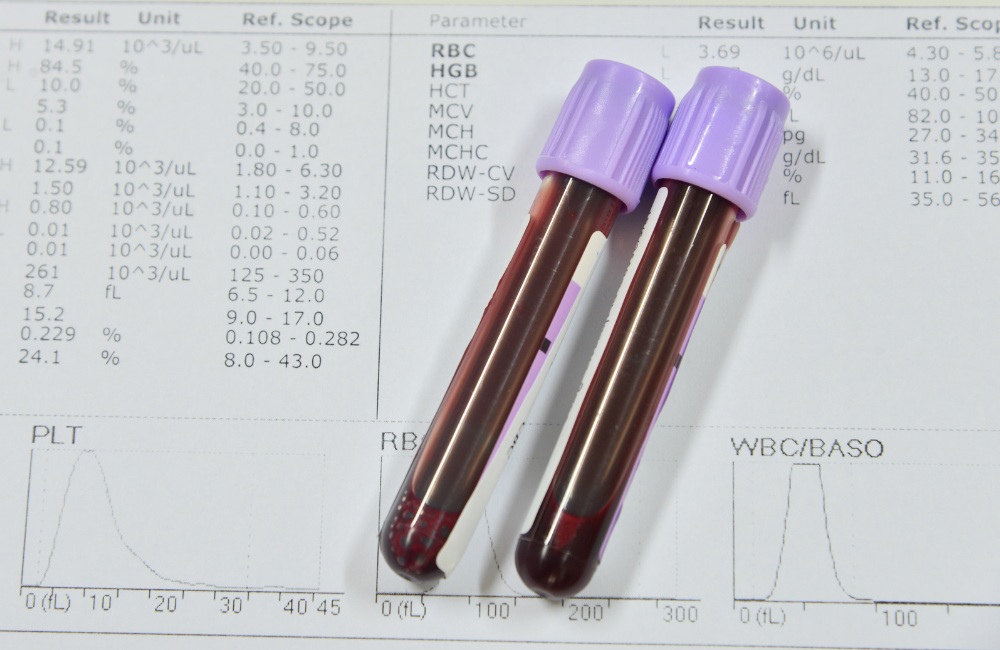The Silent Alarms: Understanding High ESR Levels in Health

Have you ever heard about ESR levels and wondered what they might indicate? ESR, or Erythrocyte Sedimentation Rate, is a crucial blood test that can reveal a lot about your health. Elevated ESR levels can be a puzzling signal, leaving you with more questions than answers. But fear not, as we embark on a journey to demystify the possible reasons for high ESR levels.
In this article, we will delve into the intricacies of ESR and uncover the potential culprits behind elevated readings. Think of it as Sherlock Holmes investigating the mysteries of your blood, with each clue leading us closer to the truth. By the end of this article, you’ll not only understand ESR better but also be well-equipped to discuss your health with your healthcare provider.
Table of Contents
ToggleUnderstanding ESR Levels
Understanding ESR levels is like deciphering a secret code within your body. This simple blood test can reveal so much about your health. When your ESR is within the normal range, it’s a reassuring sign that your body’s defense mechanisms are at ease. Elevated ESR levels, on the other hand, act as a warning signal, indicating that something might be amiss. It’s crucial to remember that ESR is a nonspecific marker, and while it can point you in the right direction, it won’t provide a precise diagnosis. That’s where healthcare professionals come in, using ESR as a valuable clue in the investigation of your well-being.
The Significance of ESR in Diagnosis
ESR’s significance in diagnosis is akin to a compass guiding a lost traveler. When it comes to healthcare, it’s a versatile tool. Elevated ESR levels can alert doctors to the presence of inflammation or infection, prompting further investigations. The results may not pinpoint the exact problem, but they provide a critical starting point. In long-term conditions like autoimmune disorders, ESR becomes a trusted companion, helping monitor disease activity. Essentially, ESR is the first chapter in the story of your health, guiding healthcare providers to the subsequent pages.
Inflammation: The Usual Suspect
Inflammation is like a double-edged sword in your body’s defense system. On one hand, it’s crucial for fighting off intruders, much like your body’s own superhero. However, when inflammation becomes chronic, it can lead to various health issues. Infections and autoimmune disorders are common instigators, setting off the alarm bells that trigger elevated ESR levels. The body’s response to these invaders often involves increased production of proteins, making the blood more viscous and causing red blood cells to settle more rapidly. In essence, it’s a battle cry from your body that something needs attention.
Chronic Conditions: Silent Intruders
Chronic conditions are like stealthy intruders who infiltrate your body and wreak havoc behind the scenes. Chronic kidney disease is a silent assailant, impacting your ESR levels as it disturbs the delicate balance of waste removal in your system. Rheumatoid arthritis, another covert operator, leads to ongoing inflammation that sends your ESR levels soaring. The challenge with chronic conditions is that they often remain hidden until their effects become more apparent, making ESR a valuable early-warning system.
Hematological Causes
Hematological causes for high ESR levels are akin to a twist in the plot of your health narrative. Anemia, a common blood disorder, is like a character with a pivotal role. When your red blood cell count is low, they don’t stack up properly, causing a spike in ESR. Blood disorders, such as sickle cell anemia or leukemia, introduce unexpected complications to the story. They can disrupt the balance in your blood, leading to abnormal ESR levels. Just as in a good mystery, these hematological causes require thorough investigation to understand their impact.
Medications and ESR Levels
Medications’ influence on ESR levels is like an intricate subplot in your health story. Over-the-counter drugs, often considered innocuous, can have hidden consequences on your ESR readings. Similarly, prescription medications like corticosteroids can be undercover agents manipulating ESR levels. It’s essential to maintain open communication with your healthcare provider, sharing all the medications you’re taking. This way, they can untangle the web of pharmaceutical effects on your ESR readings and make informed decisions about your health.
Age and Gender Factors
Age and gender factors in ESR levels are akin to the unique characters in your health journey. They add depth and complexity to the storyline. It’s important to recognize that ESR values can vary based on factors like age and gender. For example, as we age, our ESR levels tend to increase gradually. Understanding these nuances is like appreciating the subtleties in a fine piece of literature; it adds depth to your health narrative.
Pregnancy and ESR
Pregnancy and its influence on ESR levels are like a dynamic subplot, with changing dynamics and unexpected turns. ESR levels can fluctuate during pregnancy due to hormonal shifts and bodily changes. It’s like a rollercoaster ride for expectant mothers, but these variations are typically temporary and related to the unique demands of pregnancy. Monitoring ESR during this time is essential to ensure a smooth and healthy journey for both mother and baby.
Lifestyle Choices and Diet
Your lifestyle choices and diet are the characters that shape your health narrative. Smoking, like an antagonist, can cast a shadow over your ESR levels. It’s akin to a daily smokescreen that clouds your body’s defenses, potentially leading to elevated ESR. On the other hand, nutrition plays the role of the supporting protagonist, providing your body with the tools it needs to combat intruders. A diet rich in essential nutrients is like equipping your body’s soldiers with state-of-the-art weaponry, ensuring that your ESR levels remain in check.
Cancer and ESR
Cancer’s involvement in ESR levels is like a gripping subplot filled with suspense and uncertainty. Cancer cells can release substances that affect ESR, serving as subtle hints in the plot of your health. Detecting high ESR levels can trigger further investigations to rule out malignancies, making it a critical aspect of your health story. While high ESR doesn’t always mean cancer, it’s an indication that warrants thorough exploration.
Monitoring and Diagnosis
Monitoring and diagnosis are the detective work in your health narrative. Just as a vigilant detective keeps an eye on potential threats, regular monitoring of ESR levels is crucial. It’s like having a security system in place, alerting you to any unusual activities in your body. If your ESR levels are consistently high or show significant changes, your healthcare provider will step in as the investigator, conducting further tests to determine the underlying cause.
Treating High ESR
Treating high ESR levels is like resolving the central conflict in your health story. It involves targeting the underlying causes, much like tackling the root of a problem. Whether it’s managing inflammation, treating an infection, or adjusting medications, your healthcare provider takes on the role of the problem solver. The goal is to restore your ESR levels to a healthy range, effectively extinguishing the source of any “fires” that triggered the initial alarm.
Case Studies
Case studies are the real-life examples that add depth to your health narrative. They are like relatable characters, sharing their unique journeys with high ESR levels. These stories provide insights into the complexity of the issue and how it can affect different individuals. By exploring these cases, you gain a better understanding of the diverse scenarios where high ESR levels may come into play.
When to Consult a Healthcare Professional
Knowing when to consult a healthcare professional is like recognizing the turning point in your health story. If you’re concerned about your ESR levels, don’t hesitate to reach out to the experts. They are like the guiding stars in your narrative, ready to provide the answers and solutions you need. Your health is a precious story, and consulting a healthcare professional is the key to ensuring a happy and healthy ending.
Conclusion
In the grand narrative of your health, elevated ESR levels may seem like a perplexing plot twist. However, by unraveling the possible reasons for high ESR levels, you’ve gained valuable insights into this enigmatic character in your health story. Just as a good story leaves you with a sense of closure, understanding your ESR levels empowers you to take control of your health journey. Remember, your body is an intricate novel, and each aspect, from inflammation to medications and lifestyle choices, plays a role in the unfolding narrative.
FAQ’s
Stress can indirectly impact ESR levels by exacerbating underlying conditions like inflammation. However, ESR is not a direct measure of stress.
Maintaining a healthy lifestyle, including a balanced diet and regular exercise, can help manage ESR levels. However, the most effective approach depends on the underlying cause.
The frequency of monitoring ESR levels depends on individual health conditions. Your healthcare provider will recommend the appropriate schedule based on your specific situation.
Occasionally, slightly elevated ESR levels may occur without a specific health problem. However, persistent or significantly elevated levels usually indicate an underlying issue.
Mildly elevated ESR levels alone may not be a cause for immediate concern. It’s essential to consult with a healthcare professional to determine the underlying cause and develop an appropriate action plan.
Book an Appointment
Recent Articles
-
 Zerodol-SP Tablet: Power of Pain Relief and Inflammation Control30 Jun 2023
Zerodol-SP Tablet: Power of Pain Relief and Inflammation Control30 Jun 2023 -
 Glycerin for Face: A Game-Changer in Skincare?01 Sep 2023
Glycerin for Face: A Game-Changer in Skincare?01 Sep 2023 -
 The Incredible Benefits of Eating Walnuts: Boosting Your Health One Nut at a Time29 Jun 2023
The Incredible Benefits of Eating Walnuts: Boosting Your Health One Nut at a Time29 Jun 2023 -
 The Marvel of First-Time Sex: Unveiling the Potential for Pregnancy05 Jul 2023
The Marvel of First-Time Sex: Unveiling the Potential for Pregnancy05 Jul 2023 -
 Full Body Checkup: A Complete Test List for Optimal Health02 Nov 2023
Full Body Checkup: A Complete Test List for Optimal Health02 Nov 2023

